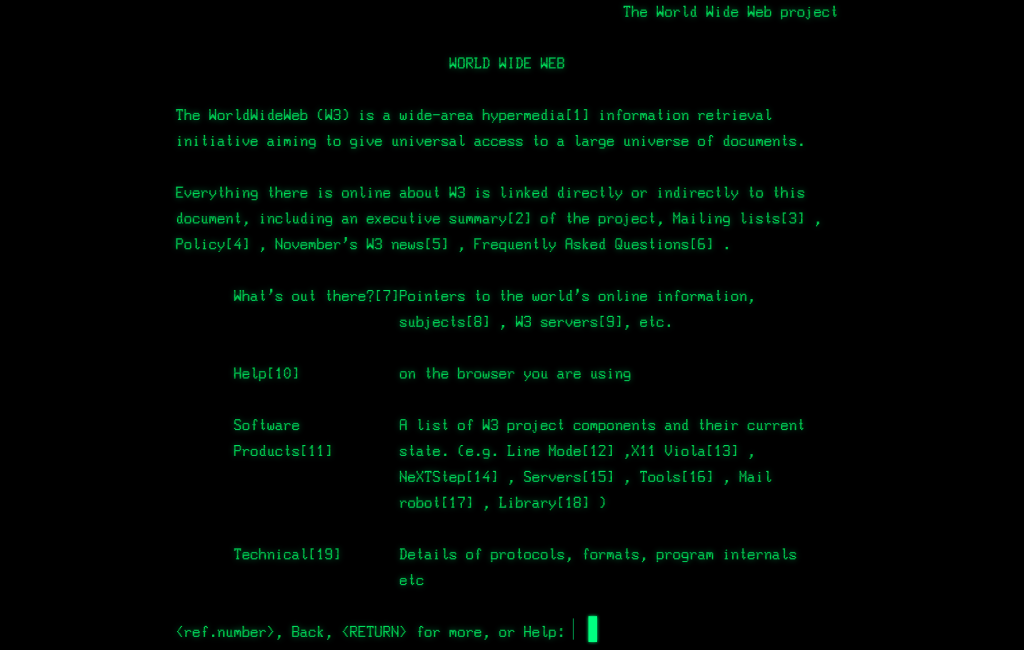March 2019 archive
Mar 30
TDYR 361 – Reflections on IETF 104 in Prague
Mar 18
TDYR 360 – What was the Internet like before the Web? Celebrating 30 years of the Web – #Web30
Mar 12
Celebrating the 30th Anniversary of the World Wide Web

Back around 1991, I was traveling throughout the eastern USA teaching an “Introduction to the Internet” course I had written. The students were mainly from telecom, financial, and software companies wanting to know what this Internet thing was all about. I taught about IP addresses and DNS, using email, sending files with FTP, using archie and veronica to find info, engaging in USENET discussions, and using Gopher to explore “gopherspace”.
At the end of the course, one of the final sections was on “emerging technologies”. And there, nestled in with HyTelnet and WAIS, was one single page about this new service called the “World-Wide Web”.
And all the page really said was: telnet to info.cern.ch, login as “www”, and start pressing numbers to follow links on the screen.
That was it! (and you can still experience that site today)
We had no idea in those very early days that what we were witnessing was the birth of a service that would come to create so much of the communication across the Internet.
In only a few short years, of course, I was teaching new courses on “Weaving the Web: Creating HTML Documents” and “Navigating the World-Wide Web using Netscape Navigator“. And all around us there was an explosion of content on the Internet as “everyone” wanted to create their own websites.
The Web enabled anyone to publish and to consume content (assuming they could get access to the Internet). Content finally broke free from the “walled gardens” of the proprietary commercial online services such as CompuServe, AOL, Prodigy, and others. The Web brought an open layer of publishing, communication, and commerce to the gigantic open network of networks that is the Internet. It was a perfect example of the “permissionless innovation” allowed by an open, globally-connected Internet, where no one has to ask permission before creating new services.
Whole new industries were born, while others faded away. New words entered our vocabulary. (ex. before the Web, who used the word “browser”?) New opportunities emerged for so many people around the world. Lives were changed. Education changed. Economies changed. The very fabric of our society changed.
While it is true that the Web could not exist without the Internet, the Internet would not be as amazing as it is without the Web.
And so on this momentous day, we join with the people at CERN, the World Wide Web Consortium (W3C), the World Wide Web Foundation, Tim Berners-Lee, and so many others in celebrating the 30th anniversary of the Web.
The path forward for the next 30 years of the Web, which relies on the Internet to flourish, is not so clear. It is a challenging time for the Internet. And the intensity of the consolidation and centralization within the Internet economy has caused Tim Berners-Lee himself to issue a call to re-decentralize the Web.
But for today, let us focus on all the good the Web has brought to the Internet, all the people it has helped, all the lives it has transformed.
Happy 30th birthday to the Web!
Image credit: CERN’s re-created info.cern.ch.
The post Celebrating the 30th Anniversary of the World Wide Web appeared first on Internet Society.

